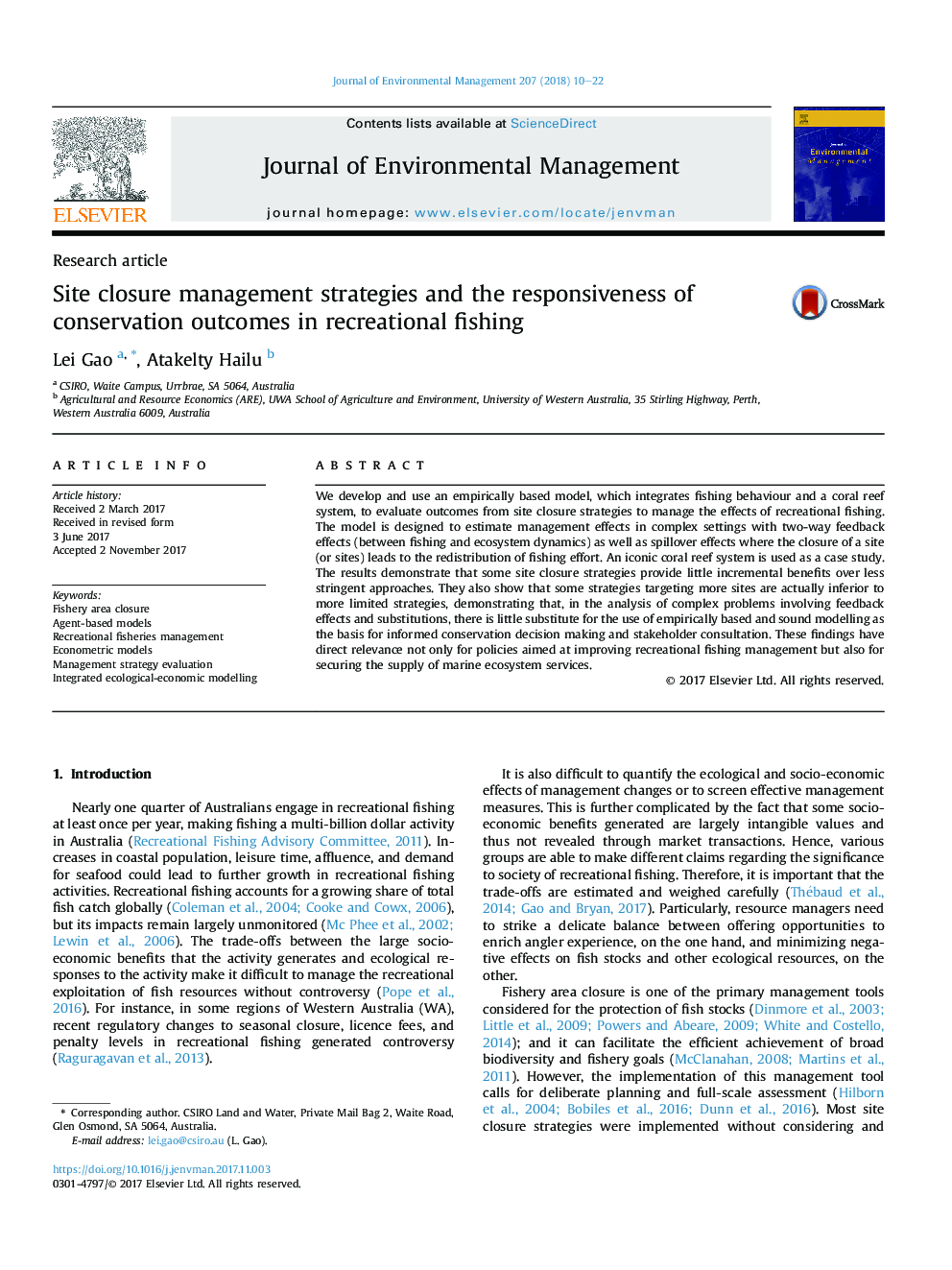| Article ID | Journal | Published Year | Pages | File Type |
|---|---|---|---|---|
| 7478377 | Journal of Environmental Management | 2018 | 13 Pages |
Abstract
We develop and use an empirically based model, which integrates fishing behaviour and a coral reef system, to evaluate outcomes from site closure strategies to manage the effects of recreational fishing. The model is designed to estimate management effects in complex settings with two-way feedback effects (between fishing and ecosystem dynamics) as well as spillover effects where the closure of a site (or sites) leads to the redistribution of fishing effort. An iconic coral reef system is used as a case study. The results demonstrate that some site closure strategies provide little incremental benefits over less stringent approaches. They also show that some strategies targeting more sites are actually inferior to more limited strategies, demonstrating that, in the analysis of complex problems involving feedback effects and substitutions, there is little substitute for the use of empirically based and sound modelling as the basis for informed conservation decision making and stakeholder consultation. These findings have direct relevance not only for policies aimed at improving recreational fishing management but also for securing the supply of marine ecosystem services.
Keywords
Related Topics
Physical Sciences and Engineering
Energy
Renewable Energy, Sustainability and the Environment
Authors
Lei Gao, Atakelty Hailu,
